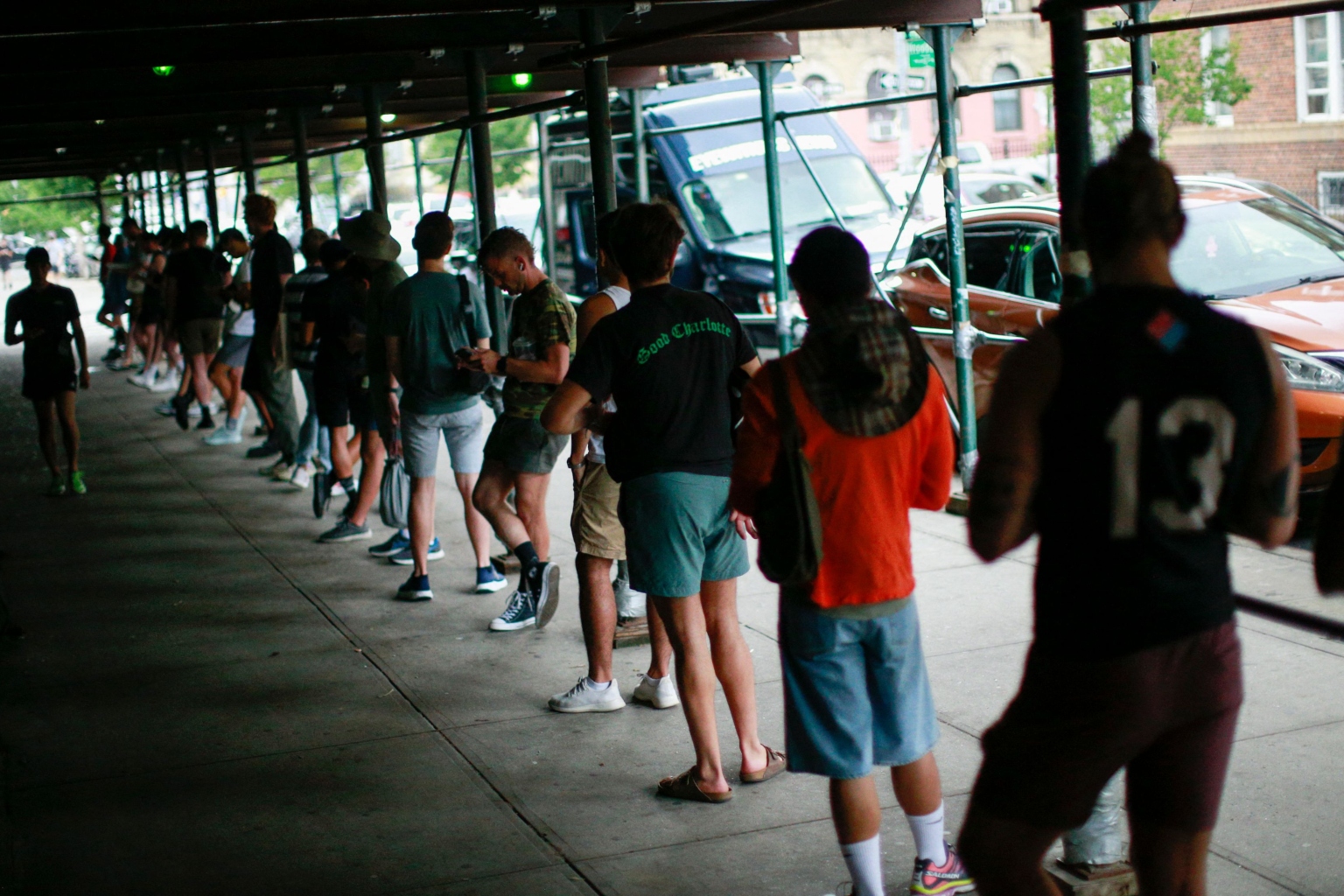ST Explains: Monkeypox is a global health emergency. What happens now?
Sign up now: Get ST's newsletters delivered to your inbox

People waiting in line to receive the monkeypox vaccine in Brooklyn on July 17, 2022.
PHOTO: AFP
The World Health Organisation on Saturday (July 23) declared the monkeypox outbreak a public health emergency of international concern (PHEIC), the highest level of alert for a disease, due to its rapid spread around the world.
Monkeypox, endemic to West and Central Africa, has spread in the past two months with more than 16,00 cases in 75 countries and territories. A large number of cases have been reported from Europe. The infectious disease is related to the smallpox virus that was eradicated in 1980, but is far less severe.
What does the PHEIC declaration mean?
This means that WHO views monkeypox as a serious threat to public health with international spread that warrants an integrated, international approach.
In the United States, the White House said it was a "call to action for the world community to stop the spread of this virus".
Governments are now expected to face pressure to acknowledge the growing problem and take action. WHO member states must now report any potential monkeypox cases within 24 hours; non-member countries can also report potential cases or outbreaks.
The declaration is also expected to open up funding for research into the disease. WHO head Tedros Adhanom Ghebreyesus said the declaration would help speed up the development of vaccines.
Vaccines and anti-viral medication for smallpox are being used to treat monkeypox.
When is a public emergency declared?
While considering an outbreak's health risks, including global transmissibility, WHO convenes an international panel of experts - an emergency committee - to advise on the response.
A disease is categorised as a PHEIC when it is deemed to pose a risk to public health as it is spreading globally, thus requiring a coordinated international response.
Monkeypox's mortality is low, with five reported deaths, and vaccines are available. These factors divided WHO's 16-member emergency committee on the outbreak's classification, but Dr Tedros made the call to declare a health emergency.
Trade or travel restrictions, such as those in response to Covid-19, may be required to curb the spread - although none have been declared for monkeypox yet.
Monkeypox is the seventh health emergency declared by WHO, the first since January 2020's Covid-19 declaration. Others include swine flu in 2009, Ebola in 2014 and 2019, Zika virus in 2016, and polio virus in 2014.
Covid-19 and polio are still ongoing health emergencies.

What are the next steps?
The concern now is of a continuing international spread of the disease, especially as experts do not fully know its modes of transmission.
Countries have been urged to step up surveillance and public health measures, as well as to strengthen their capabilities to treat, prevent and control infection in their medical facilities.
Nations able to produce vaccines, treatments and ways to diagnose monkeypox have also been urged to develop these in case of further spikes in cases.
WHO considers the risk of monkeypox moderate globally, except in Europe where the risk is categorised as high.
A study published by the New England Journal of Medicine found that 95 per cent of the cases were transmitted through sexual activity.
Dr Tedros said "for the moment this is an outbreak that is concentrated among men who have sex with men, especially those with multiple sexual partners".
The outbreak "can be stopped with the right strategies in the right groups", through all countries working to raise awareness and adopting measures to stem the spread of the virus. He also cautioned against discriminating against affected communities.



